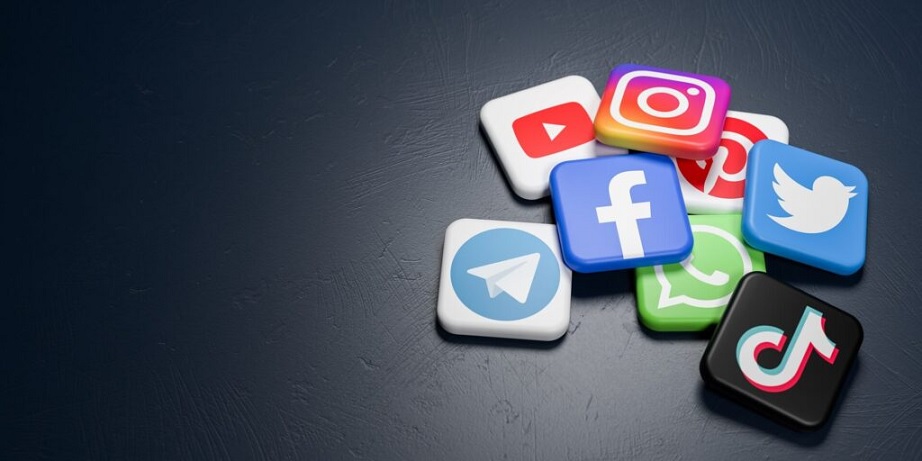Introduction to Social Media
Social media is a part of our everyday life. Whether you are scrolling through photos, chatting with friends, or watching videos, you’re using social media. It has changed the way we talk, share, and even do business. From Facebook and Instagram to TikTok and Twitter, these platforms have become a huge part of the modern world.
In this article, we’ll explore what social media is, how it works, its benefits, and also its downsides. We’ll also look at how it affects different parts of life like relationships, education, and work.
Table of Contents
What Is Social Media?
Social media is a group of websites and apps that let people create and share content, such as photos, videos, and text, with others. It also allows people to connect with friends, family, and even strangers from all over the world.
Popular Social Media Platforms
Some of the most well-known social media platforms include:
- Facebook – Used for posting updates, photos, and keeping in touch with friends.
- Instagram – Known for sharing photos and short videos.
- Twitter (X) – Great for short messages and news.
- TikTok – Popular for short, fun, and creative videos.
- LinkedIn – A platform focused on professional networking and jobs.
- Snapchat – Used mostly by younger people for sending disappearing photos and messages.
- YouTube – A video-sharing platform with millions of users.
Each platform has its own unique features, but the main goal is the same: to connect and share with others.
Why Do People Use Social Media?
People use social media for many reasons. It helps them stay connected, express themselves, and discover new things.
Communication and Connection
One of the biggest reasons people use social media is to talk with others. You can send messages, post updates, or even video chat. It’s an easy way to stay in touch, especially with friends or family who live far away.
Sharing and Creativity
Social media gives everyone a chance to share their life and creativity. You can post pictures, write stories, or even create funny videos. Artists, musicians, and writers also use it to show their work to the world.
Learning and Information
You can learn a lot on social media. Many people share tips, facts, and lessons. You can follow pages about cooking, science, history, fitness, and more. Some people even learn new skills just by watching videos online.
Entertainment
When people are bored, they often open social media. Watching funny clips, scrolling through photos, or reading posts can be very entertaining. Some people even make careers as content creators and influencers by making people laugh or teaching them something new.
Benefits of Social Media
Social media has many good sides. When used wisely, it can help people grow, connect, and succeed.
Staying in Touch
Thanks to social media, distance doesn’t stop us from staying close to our loved ones. You can video call your cousin in another country or share your holiday photos with your grandmother across town.
Building Communities
People with similar interests or struggles can find each other. Whether it’s a group for new parents, pet lovers, or people dealing with health issues, social media builds communities where people support one another.
Business and Marketing
Social media is a great tool for businesses. It helps them reach customers, share news, and sell products. Small businesses and startups often rely on platforms like Instagram and Facebook to grow without spending too much money.
Education and Awareness
Many schools and teachers use social media to communicate with students and parents. It’s also used to raise awareness about important issues like health, safety, and the environment.
The Dark Side of Social Media
Even though social media is useful, it can also cause problems if not used carefully.
Cyberbullying and Hate
Some people use social media to bully others or spread hate. Hurtful comments, fake rumors, and online fights can affect a person’s mental health and self-esteem.
Addiction and Time Waste
It’s easy to lose track of time while scrolling through posts or watching videos. Too much time on social media can lead to laziness, less sleep, and poor focus.
Fake News and Misinformation
Not everything you see on social media is true. Some people spread fake news or wrong information, which can confuse others or even cause harm.
Privacy Concerns
Sometimes, people share too much online without thinking about who might see it. Others might misuse your personal information, which can lead to scams or identity theft.
Social Media and Mental Health
Social media can affect your mood and mental health, both in good and bad ways.
The Good Side
- Seeing positive stories or kind messages can lift your mood.
- Talking to friends or sharing your feelings can make you feel less lonely.
- Following motivational pages can inspire you.
The Bad Side
- Comparing yourself to others can make you feel unhappy.
- Negative comments can hurt your feelings.
- Seeing too much sad or angry content can cause stress or anxiety.
It’s important to take breaks and not let social media control your emotions.
Social Media and the Younger Generation

Children and teenagers use social media a lot. It’s how they connect, learn, and have fun. But it’s also where they can face dangers like peer pressure, bullying, or seeing adult content.
How Parents Can Help
- Talk openly with children about what they see online.
- Set screen time limits.
- Use privacy settings to keep kids safe.
- Encourage real-life activities like sports and reading.
Social Media and Work Life
Many people use social media at work or for their jobs. It’s helpful for marketing, teamwork, and customer service.
Positive Uses at Work
- Companies use it to talk with customers.
- Teams use apps like Slack and LinkedIn for work chats and hiring.
- Freelancers find clients through platforms like Instagram or Twitter.
Be Careful What You Post
Your online image matters. Employers might check your social media before hiring you. It’s smart to avoid posting anything rude or unprofessional.
Tips for Using Social Media Wisely
To get the most out of social media and avoid problems, follow these simple tips:
Set Limits
Don’t spend all day on social media. Take breaks, go outside, or do something else you enjoy.
Think Before You Share
Before you post something, ask yourself: Is it kind? Is it true? Could it hurt someone?
Protect Your Privacy
Use strong passwords, don’t share personal details like your phone number or home address, and adjust your privacy settings.
Follow Positive Accounts
Surround yourself with pages and people that make you feel happy and inspired, not stressed or sad.
The Future of Social Media
Social media keeps growing and changing. New apps and trends appear every year. In the future, we may see:
- More use of virtual reality (VR) and artificial intelligence (AI).
- Stronger rules to protect users from harm.
- Better tools to stop fake news.
- More chances for people to earn money by creating content.
It will be exciting to see where it goes next.
Conclusion
Social media is a powerful tool that brings people together, helps us learn, and offers endless entertainment. But like anything powerful, it should be used with care. Knowing its good and bad sides helps us make smart choices.
By staying kind, thoughtful, and safe online, we can enjoy the best parts of social media without falling into its traps. It’s not about using social media less—it’s about using it better.










